A Jewish View of Christmas
A taste of Jewish history concerning Christmas—and how Christ can make all the difference.
“Where were you on Christmas?” The unexpected question from U.S. Sen. Lindsey Graham (R-SC) to Elena Kagan came during her 2010 Senate confirmation hearing for associate justice of the Supreme Court. It was unexpected because it was unrelated to the law.
JEWISH CULTURE & CUSTOMS
Discover more Jewish historical traditions in Jewish Culture & Customs DVD.
I watched on C-SPAN as this Jewish woman paused, squirmed a little in her chair, straightened her suit jacket, laughed, and then mused, “Well, like all Jews, I was probably at a Chinese restaurant.”1
I chuckled at her quick wit and sense of humor. And it is indeed true we Jews love Chinese food, and Chinese restaurants are often the only ones open on Christmas—a holiday that historically has not been kind to the descendants of Abraham, Isaac, and Jacob.
Misery and Terror
For hundreds of years, Christmas was a day of misery and terror for my people. “Christians” vented their anti-Semitism through persecution and pogroms—barbaric raping and killing sprees that began in Russia and lasted through World War II in Central and Eastern Europe.2
The pogroms intensified on Christmas Eve and Christmas Day. Catholic and Protestant clergy commonly preached hate-filled messages directed against the Jewish “Christ Killers.”
Though the Gospel of Luke records that Jesus’ birth brought a heavenly host to proclaim, “Glory to God in the highest, and on earth peace, goodwill toward men” (2:14), Jesus’ kinsmen according to the flesh received little or no goodwill on Christmas from people professing to be Christians.
My grandparents lived in Eastern Europe in the late 1800s. They spent Christmas secluded inside their homes because they feared for their safety. My Polish grandmother knew Christmas as Vay Nahcht, (Yiddish for “Woe Night”), parodying the German Wei Nahchten (Holy Night). My Hungarian grandmother knew it as Goyim Nahcht (Gentile Night).
Other names Jewish people used for Christmas were Finstere Nahcht (Dark Night) and Moyredike Nahcht (Fearful Night).
The pogroms drove my grandparents to immigrate to what Jewish people the world over referred to in Yiddish as the Goldene Medina (Golden Land) of the United States of America. Sadly, but understandably, they brought with them a healthy dose of negativity for the goyishe (Gentile) day of Christmas. My parents, first-generation Jews in America, knew Christmas was not a holiday for their people.
My Experience
Growing up as an Orthodox Jew, I was taught to respect the faiths of others—and to reject them all. In public school I sang both Christmas carols and Hanukkah songs, enjoyed looking at the decorated Christmas trees, envied the Christmas gift-giving tradition, and was fascinated by the various displays of lights.
But I knew none of those things were for me. My declaration of faith was the Shema, the core of Jewish belief: “Hear, O Israel: The LORD our God, the LORD is one!” (Dt. 6:4). I knew the Jewish God was the one and only, real and invisible God of the universe. He was not some god-baby born on Earth.
As a young teenager, I had my first glimpse of anti-Semitism when a Jewish friend invited me to a tree-decorating party hosted by her family. I was shocked but curious. A Jewish family celebrating Christmas?
Her father was an engineer whose employer disliked Jews. Years earlier, her father had changed his name to Smith to hide his Jewish identity. Each year the family decorated a Christmas tree and placed it prominently in front of the living room window so that her father’s boss would see it when he drove by. This subterfuge, I was told, was the best way for her father to keep his job.
Becoming a believer in Jesus Christ years later in no way changed my initial view of celebrating Christmas. I found no biblical evidence for the American culture surrounding the holiday, so I chose not to celebrate it that way. I didn’t get a Christmas tree or decorate our house with lights or exchange gifts with anyone on December 25. I had no objection to other believers celebrating Christmas with all its accoutrements, but I wanted no part of it.
Then I met the love of my life, Alice. She was raised in a godly Christian home. Christ was the center of her parents’ celebration, and they had certain traditions unique to their German-Swedish roots.
We were married a week before Christmas. When we returned from our honeymoon, I wanted to do something nice for her family. So I volunteered to buy a Christmas tree and decorate it for them.That gesture began a wonderful cultural exchange (42 years long) where Alice and I blend our diverse backgrounds to form our own traditions.
Through the years, I’ve found Bible-believing Christians have all types of traditions, a fact that seems appropriate since Christ is redeeming people from “every tribe and tongue and people and nation” (Rev. 5:9). When it comes to Christianity, “There is neither Jew nor Greek, there is neither slave nor free, there is neither male nor female; for you are all one in Christ Jesus” (Gal. 3:28).
If we are born-again believers, we are new creations: “Old things have passed away; behold, all things have become new” (2 Cor. 5:17). The message of the cross is for both Jews and Gentiles: “He Himself is our peace, who has made both one, and has broken down the middle wall of separation . . . that He might reconcile them both to God in one body through the cross” (Eph. 2:14, 16). Genuine, Bible-believing faith in Christ should be the ultimate cure for anti-Semitism in this world.
What About You?
What are your traditions? Do you take your children or grandchildren to see Santa? Do you exchange gifts? Do you eat ham or turkey or Chinese food (as we still do)? Do you decorate a tree? Place holly around your home? Hang mistletoe?
Do you volunteer at a soup kitchen? Do you attend church on Christmas Eve? On Christmas Day? Do you read the account of Christ’s birth from Luke 2?
In the light of eternity, what you do on December 25 really does not matter. What matters is what you believe concerning Jesus Christ. Hopefully, you believe Jesus is God in the flesh who was born of a virgin, lived a sinless life, and “gave Himself a ransom for all” (1 Tim. 2:6). I hope you believe He shed His blood and died for your sins (Heb. 9:22).
You see, Christmas is more than family, fun, and fellowship. It is about Christ (Messiah). So enjoy your traditions this Christmas. But make sure you focus on Jesus, the great unifier who makes us one in Christ; and thank Him for what He has done for us all. Merry Christmas!
ENDNOTES
-
- Manu Raju, “Kagan: I spent Christmas at Chinese restaurant,” politico.com, June 29, 2010 [tinyurl.com/y5rb6rjq].
- Hila Ratzabi, “What Were Pogroms?” myjewishlearning.com [tinyurl.com/ybcckw66].
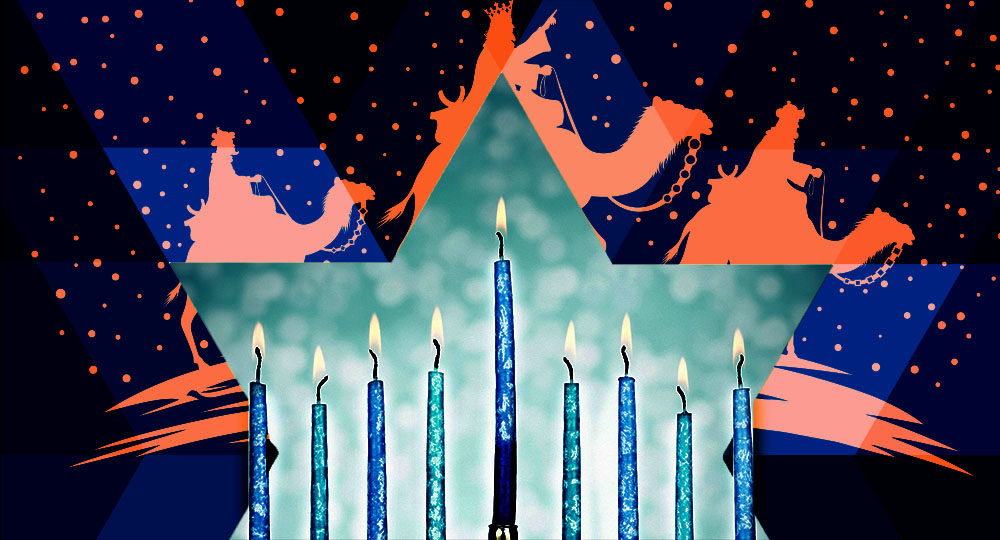

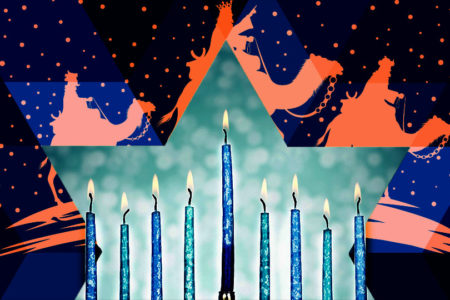
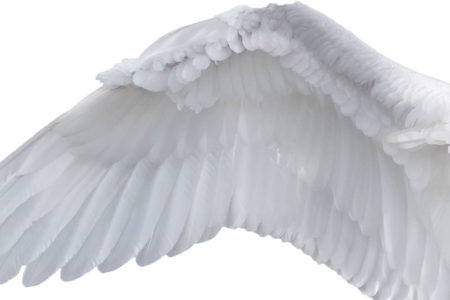
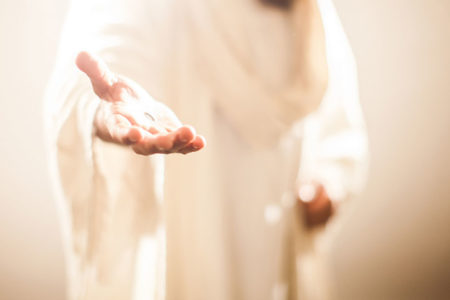

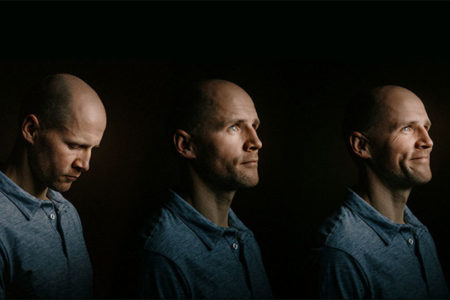


Christianity is not about holy days or special days or do and don’t, if we still look at Christianity in such a way it means we are not yet born agains. John 3:5 says, Jesus said those born of the Spirit are spirit and born of flesh are flesh. So we have to choose. Those born of the Spirit have one celebration called Christ Jesus. That’s the center point of all creation. Jesus said in Luke that is the Lord and Even of sabbath. Meaning why celebrate the day when then Lord( giver) of the day has come. We live in a better covenant hebrews 8:7, the first convent of observing days was heavy, faulty and a better one was sought for.
All well known “christian” holidays are pagan in origin with easter (goddess of fertility) as one of the most vile in origin, rabbits, eggs???
I do some christmas activities within the freedom that I have in knowing who I am in Christ Jesus, but I take none of those holidays serious. I would be more apt to celebrate the Jewish Holy Days given an opportunity.
I recently was blessed with the opportunity to teach three Hasidic gentlemen on a technical subject for their mfg facility in NJ and I had to explain that most Christians do not give any credence to this replacement theology garbage. Never understood anti-Semitic attitudes, whats not to love.
Very interesting article. Being raised a Christian and having the pastor of the first church I joined as an adult, a messianic Jew, I learned to love scripture and my Jewish roots.
Please Correct the statement that those who refused to give room to Joseph and Mary were Christian. They were all Jews- Jesus, Mary, Joseph and innkeepers. Followings of Jesus Christ were first called Christian in Antioch. And like the Jews you described, they were persecuted. Please understand the European Christians who persecuted the Jews were not the Christians of the 1st century. It’s a shame they didn’t learn from our persecuted Jewish brothers; now Christians are the persecuted faith, in this country (USA), and in the 10-40 window.
Thank you for reminding us of the true meaning of Christmas- salvation to the Jews first and also the Greeks.